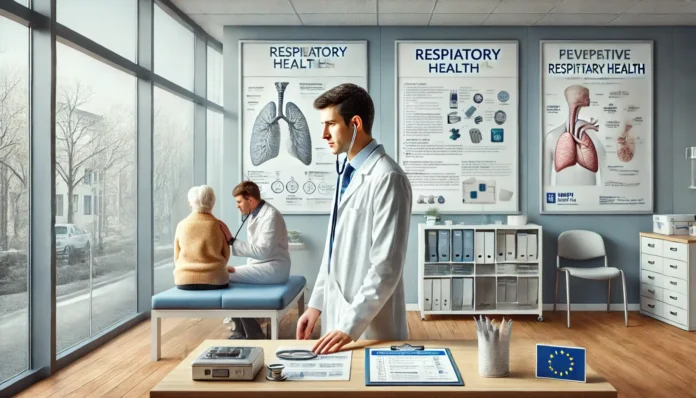Understanding HMPV, As winter spreads across Europe, more people are getting sick with colds and other breathing problems. One virus causing concern is Human Metapneumovirus (HMPV). It mainly affects people who are older, very young, or already sick. While HMPV isn’t new, more cases have been reported recently, including a large outbreak in China, making people more alert to its risks.
Table of Contents
What Are Health Authorities Saying?
As of January 2025, there are no specific recommendations from the World Health Organization (WHO) or European health agencies regarding Human Metapneumovirus (HMPV). Understanding HMPV means recognizing the importance of general preventive measures for respiratory viruses, such as regular hand washing, maintaining good respiratory hygiene, and avoiding close contact with sick individuals. Without targeted guidelines, understanding HMPV and following these basic precautions is essential to reducing the risk of infection.
What Is HMPV?
Human Metapneumovirus (HMPV) is a respiratory virus first identified in 2001. It belongs to the same family as the respiratory syncytial virus (RSV) and shares similar symptoms, including:
- Fever
- Cough
- Nasal congestion
- Shortness of breath
For most healthy individuals, HMPV causes mild, cold-like symptoms. However, it can lead to severe complications, such as bronchitis or pneumonia, particularly in young children, older adults, and people with weakened immune systems.
How Does HMPV Spread?
HMPV spreads mainly through respiratory droplets when an infected person coughs or sneezes. It can also be caught by touching contaminated surfaces, making hygiene an important defense. During flu season or in crowded places, the virus can spread quickly.
Why Should Europe Be Concerned?
While HMPV has not caused a widespread outbreak in Europe recently, the situation in China—where hospitals have been overwhelmed with respiratory illness cases—serves as a warning. Recent reports show that HMPV accounted for over 6% of positive respiratory illness tests in China during a single week in December 2024.
Europe’s aging population and high urban density create potential risks for similar outbreaks. Additionally, winter often sees a rise in respiratory infections, and the combination of HMPV, influenza, and RSV could strain healthcare systems.
Prevention: What Can You Do?

Currently, there is no specific antiviral treatment or vaccine for HMPV. However, you can take steps to protect yourself:
- Practice Good Hygiene: Wash your hands often with soap and water for at least 20 seconds.
- Avoid Close Contact: Stay away from people who show signs of illness.
- Disinfect Surfaces: Clean commonly touched items like door handles and smartphones regularly.
- Stay Home If Sick: Prevent spreading the virus by isolating yourself when feeling unwell.
- Boost Immunity: Eat a balanced diet, exercise regularly, and consider getting a flu vaccine to reduce your overall risk of respiratory illness.
What to Do If You Suspect HMPV?
Understanding HMPV is crucial if you or someone in your family has ongoing respiratory symptoms or severe complications like difficulty breathing. Seek medical help immediately in such cases. Doctors often recommend treatments to relieve symptoms, like staying hydrated or using fever-reducing medications. Severe cases of HMPV might require hospital care, emphasizing the importance of understanding HMPV and its potential impact.
Looking Ahead: Monitoring and Preparedness
Health authorities in Europe are closely monitoring respiratory illness trends this winter. Public awareness campaigns and improved tracking can help reduce the impact of HMPV and other seasonal illnesses. Understanding HMPV can aid in identifying symptoms early and taking appropriate actions.
For individuals, staying informed and following preventive measures are the best ways to protect yourself and your loved ones. This winter, understanding HMPV and its risks will help in keeping our communities healthy and safe.
Final Thoughts
Human Metapneumovirus, while less known than influenza or RSV, is a significant health concern during colder months. By understanding HMPV’s transmission, symptoms, and prevention, Europeans can take simple steps to stay safe. Read more about local news.
Stay alert, stay informed, and take care of your health. For more details, you can visit World Health Organization’s Respiratory Virus Guidelines or European Centre for Disease Prevention and Control, both of which provide resources on respiratory illnesses and prevention.
